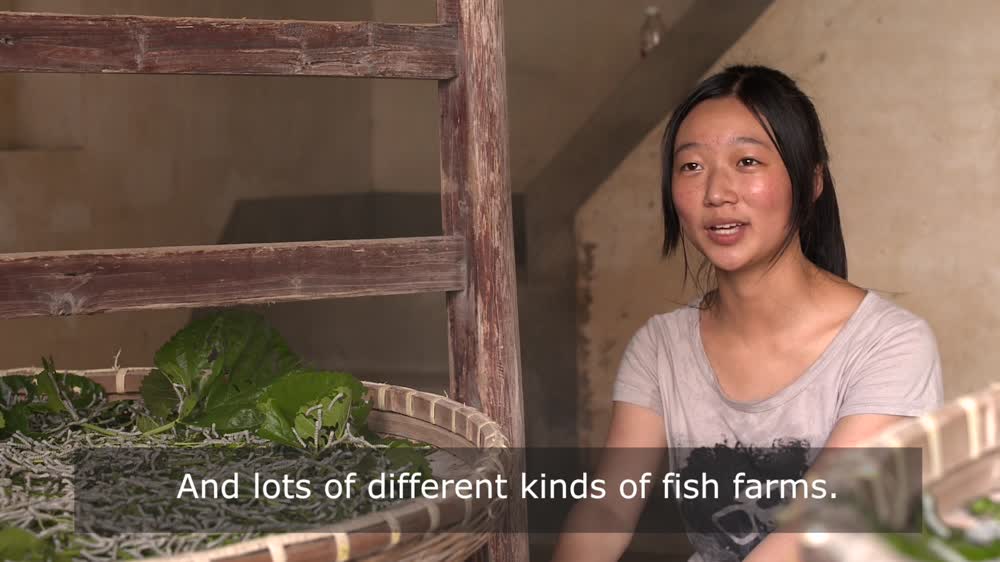The story is about 'Integrated Fish Farming', using traditional methods that have been adapted to modern circumstances, and opportunities to apply these as a low ecological footprint fish farming model. It shows two families: The Ma family who farm fish and work with other families that farm silkworms, while the Wang family farm both fish and silkworms themselves and then sell the raw silk for production of finished silk products in the village. Both families live and work in a village in China where the fish/silkworm cycle is the typical fish-farming practice, and where fish and silk are the major cash products. The cycle works like this: silkworms are fed on leaves of the mulberry tree which grows around fish ponds. The waste from Mulberry and silk worms provides some feed for the fish and the Fish waste fertilises the dykes and the mulberry - creating an integrated farm ecosystem with a low ecological footprint. This type of system is widely used in China, and the sum total of carp production on farms like this is more than 10 million tons per year, which is more than the total amount of fish produced by any other nation. The title 'Carp Jumps Over Dragon Gate' is a reference to a popular Chinese motivational tale used to inspire people to work hard and find the path to success. Fish are an important motif in Chinese mythology, and the image of a carp jumping over Dragon’s Gate is an old and enduring Chinese cultural symbol for courage, perseverance, and accomplishment. According to tradition, a carp that could leap the falls of the Yellow River at Dragon Gate, would be transformed into a dragon: this motif symbolises success. But now, there is a corrosive irony at work in this motif - since most young Chinese are leaving their villages in pursuit of wealth and success in big cities, putting a long tradition of sustainable fish farming at risk.









